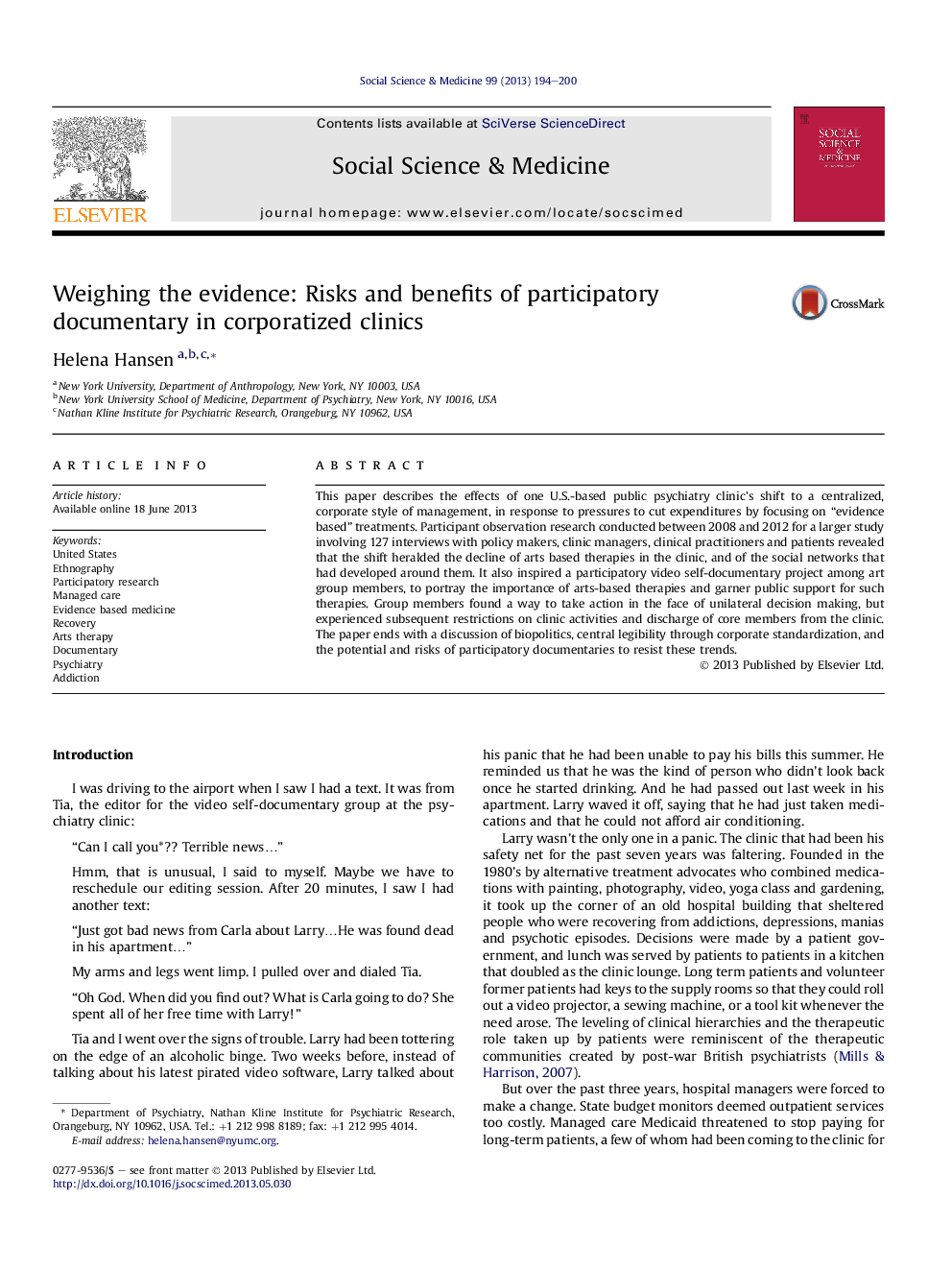| Article ID | Journal | Published Year | Pages | File Type |
|---|---|---|---|---|
| 7336553 | Social Science & Medicine | 2013 | 7 Pages |
Abstract
This paper describes the effects of one U.S.-based public psychiatry clinic's shift to a centralized, corporate style of management, in response to pressures to cut expenditures by focusing on “evidence based” treatments. Participant observation research conducted between 2008 and 2012 for a larger study involving 127 interviews with policy makers, clinic managers, clinical practitioners and patients revealed that the shift heralded the decline of arts based therapies in the clinic, and of the social networks that had developed around them. It also inspired a participatory video self-documentary project among art group members, to portray the importance of arts-based therapies and garner public support for such therapies. Group members found a way to take action in the face of unilateral decision making, but experienced subsequent restrictions on clinic activities and discharge of core members from the clinic. The paper ends with a discussion of biopolitics, central legibility through corporate standardization, and the potential and risks of participatory documentaries to resist these trends.
Keywords
Related Topics
Health Sciences
Medicine and Dentistry
Public Health and Health Policy
Authors
Helena Hansen,
